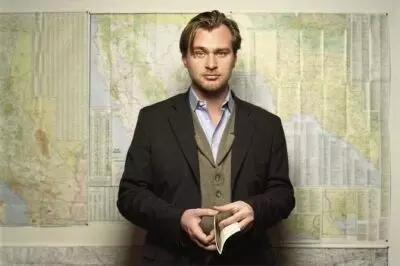
Nolan warns against rapidly advancing AI at 'Oppenheimer' screening
text_fieldsLos Angeles: Following a special screening of his upcoming biopic "Oppenheimer," which examines the creation of the first atomic weapon, director Christopher Nolan expressed concern about the speed at which artificial intelligence technology is advancing.
The 'Inception' director reportedly said these things after a preview screening of 'Oppenheimer' in New York, according to Variety.
The conversation was moderated by 'Meet the Press' anchor Chuck Todd and the panel included Nolan, as well as Los Alamos National Laboratory director Dr Thom Mason, physicists Dr Carlo Rovelli and Dr Kip Thorne and author Kai Bird, who co-wrote the book 'American Prometheus: The Triumph and Tragedy of J. Robert Oppenheimer', on which the film is based on.
Los Alamos Laboratory in New Mexico, USA is where the Trinity Test and the Manhattan Project happened which led to the construction of the nuclear bomb during WW2.
"The rise of companies in the last 15 years bandying words like algorithm — not knowing what they mean in any kind of meaningful, mathematical sense — these guys don't know what an algorithm is," Nolan shared at the screening. "People in my business are talking about it, they just don’t want to take responsibility for whatever that algorithm does."
"Applied to AI, that’s a terrifying possibility. Terrifying," Nolan continued. "Not least because AI systems will ultimately go into defensive infrastructure. They'll be in charge of nuclear weapons."
"To say that that is a separate entity from the person wielding, programming, putting that AI to use, then we're doomed. It has to be about accountability. We have to hold people accountable for what they do with the tools that they have," he added.
One of the big reasons for the ongoing WGA and SAG-AFTRA protests in Hollywood is due to the increased use of AI and what it could potentially do to human writers in the future.
"With the labour disputes going on in Hollywood right now, a lot of it — when we talk about AI, when we talk about these issues — they’re all ultimately born from the same thing, which is when you innovate with technology, you have to maintain accountability," Nolan stated.
One of the biggest points of 'Oppenheimer' is the emotional weight of the scientists and military directors pondering over the heavy questions of what their invention could lead to in the future.
Nolan told Todd that when he spoke to a bunch of researchers in AI development, they too are having their own 'Oppenheimer' moment, wondering about the responsibilities of scientists in developing new technologies and the unintended ramifications of those developments.
With inputs from IANS























